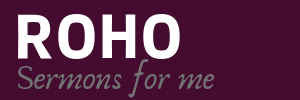Why Healing Requires More Than Self Help

The Mess We’re In
Self-help, or more pointedly, helping ourselves, is what got us into the mess we’re in today.
The idea emerged long ago, before ever there was illness, hunger, or need. The idea of autonomy was attractively packaged and skillfully marketed to our first parents with assurances that such autonomy awaited a simple action and would yield a dramatic “upgrade” in terms of status and ability: Human 2.0, if you will. What could possibly go wrong?
The trap was sprung and we have been vainly trying to realize that autonomy ever since, in part by convincing ourselves that it is attainable “if only” we meet this or that condition, or acquire this or that asset, product, or particular success. The preservation or restoration of health represents a significant aspect of that quest. If the visionary technocrats are to be taken literally, eternal life is just around the corner—a promise with a vaguely familiar ring, not to be taken seriously.
It is no small irony that Adam and Eve’s effort to improve upon perfection threw them and us all, as their descendants, from a state of perfect health into a form of progressive death for which healing has been ever needed and sought, but which has proved elusive, and of course in the end, futile. That such healing proves elusive reflects the terms upon which we insist on obtaining it as well as the forms in which we demand it be delivered. We seek healing as if we have the power (and right) to obtain it, whereas in fact it is our very weakness and lack of valid claim to such a cure which are defining characteristics of our illness. It is akin to taking “the hair of the dog that bit you,” as if the cause of the curse could somehow provide the cure.
